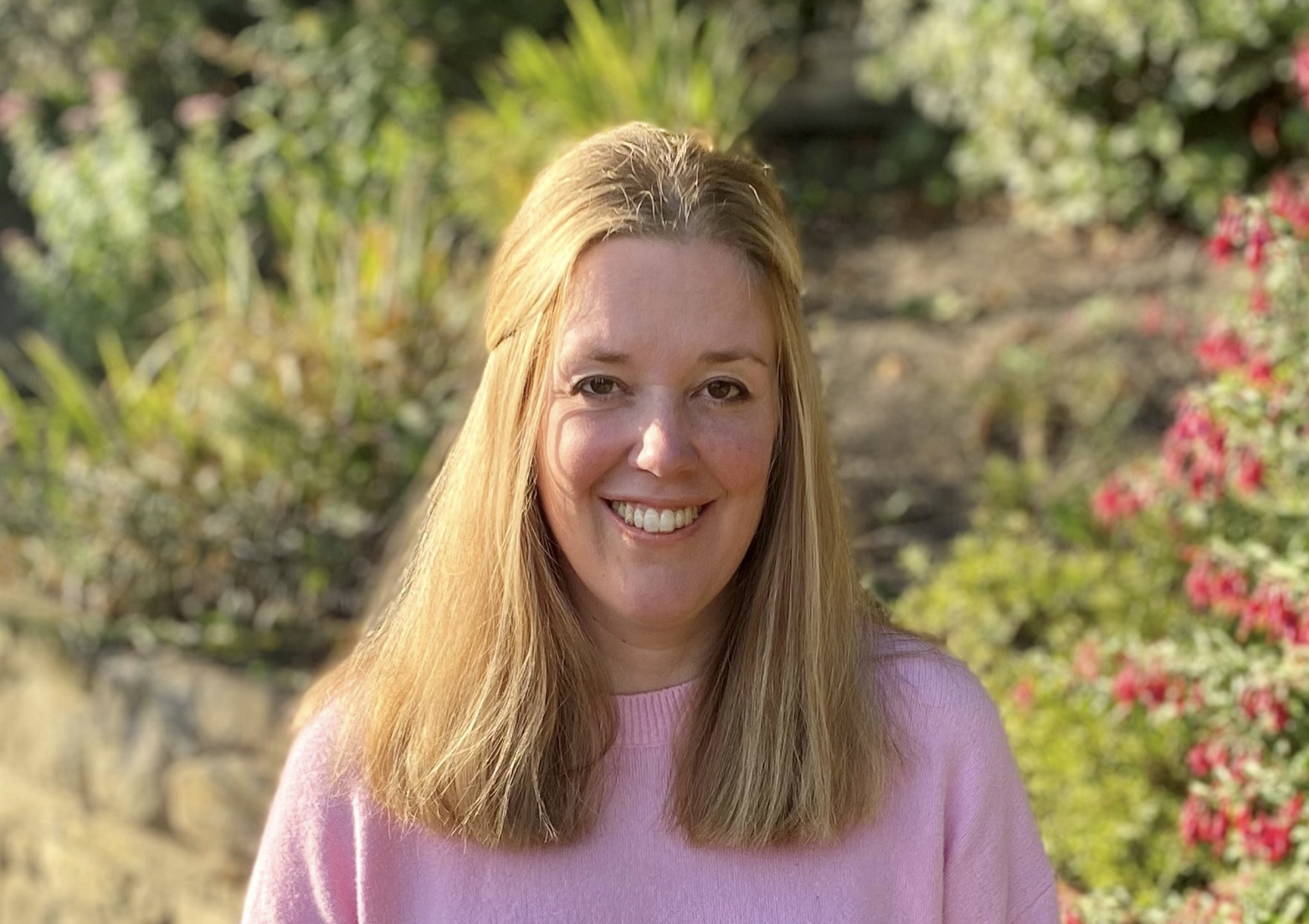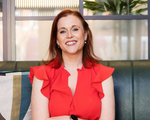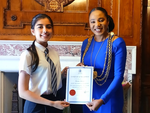Sometimes, it can seem that everyone has their entire life and career planned out. Rather than stumbling on opportunities, people meticulously hunted them down. But with refreshing honesty, Katie McShera – sustainability lead at Leeds-based Bailie Group – shares how, for her, that wasn’t the case. Instead, she trusted her experiences, took opportunities as they presented themselves, and took to living life as it evolved. Today, armed with the knowledge and confidence gleaned from roles in a range of industries, she wouldn’t change a thing. Because it led her to a company and role with purpose, a proposition that is the perfect fit for her.
What did you want to be when you were growing up?
For me, I think it changed over the years. I didn’t ever have that one thing that I solidly wanted to do when I grew up. To this day I’m a huge animal lover, so it’s probably no surprise that I had phases where I wanted to own a rescue home or kennels. But this was mixed with some short-lived career aspirations – such as the one where I decided I might quite like to become a long-distance lorry driver!
Often, you’ll hear people say that they knew exactly what they wanted to be from a young age, but that wasn’t me. I’m quite relaxed and was confident enough to let my skills develop and evolve, trusting that I’d find my way to wherever I was meant to be over time.
What was your first job?
I was always quite a hard worker and so rather than easing myself in gently, I had two first jobs — one as a Saturday girl in my local hairdressers, and another waitressing at a restaurant. While I was still only a teenager and had a long way to go until I’d found my calling in life, both jobs played a really valuable role in teaching me life skills which I certainly made use of in future.
First of all, I learned to communicate with a whole manner of different people — some I might never necessarily have encountered in my normal day-to-day life. It was a lesson in customer service, confidence and professionalism. And it taught me that not everyone will be nice, but your job is to always be professional, regardless.
This set me up for my first ‘proper’ job, working in customer service for an online wedding gift service where I worked on the phones, taking orders and dealing with problems. In fact, I tried lots of different roles in the early days – something which helped me to learn what I liked and didn’t like, and to figure out what I might be good at. I think that wide range of experiences has stood me in good stead ever since.
Did you attend university or higher education?
Yes, I went to university and studied English and European literature.
What do you love most about what you do?
The business I work for is centred around making a positive contribution to society, and my role builds on that. It offers me a sense of purpose and reward, outside of any financial benefits, and that’s something which is really important to me.
Meanwhile, the topic of sustainability is such a broad and evolving area. It’s only in recent years that it’s been more regularly spoken about in a wider domain, which means the conversation is always moving forward and there’s so much opportunity to learn and make a difference – both in the workplace and at home.
Bailie Group has such a fantastic team across different locations, I feel especially grateful to be able to meet and collaborate with people from across the group and in each of its companies. I find that working with people is where I excel, it’s what brings out the best in me.
Are there any drawbacks?
Sustainability is a big word and encompasses so much. As a result, it can be difficult narrowing down the priorities, staying focused, and quieting the other voices pulling you in different directions. Over time, I’ve learnt that you have to focus on one thing and do that well – rather than trying to tackle everything at once.
Once you start learning about sustainability, and really digging deep, it can create some anxiety. As a society, a lot of the content we consume can be quite gossipy, but in the meantime what matters is that there’s an actual existential crisis taking place. Sometimes people don’t get the gravity of it and that can be frustrating.
Is there anything you wish you could change in wider terms, which would increase the impact of your work? (Eg. External rules, regulations, policy)
For me, I’d love to see more investment in public transport. Moving away from mass car ownership —even in the case of electric cars, as production has a huge carbon footprint —would make a significant, positive difference to emissions.
What does a typical day look like in your role?
Usually, I’ll have several different projects on the go at once, each with their own plan. So, I usually start my day by refreshing myself on where I’m up to with each, and then feed any actions into my lower list. I’ll check my calendar for meetings and ensure I’m prepped for each one. Meetings might be with the ‘green team’ or with management to review progress on a given initiative. Often, I’ll be working with departments across the group to make improvements. At the moment, I’m working with our IT department to record our group transportation emissions.
I spend a lot of time making sure we have the data and evidence we need for certain certifications. Although sometimes it isn’t the most exciting area of my role, it’s a really vital part of it. Without the drive to maintain certifications, it would be much easier to stall on improvements – leading to a smaller impact overall.
How do you strike a balance between home and work?
I’m lucky that I work for a family-friendly business that has flexibility, so I haven’t found this balance too tricky; but I think, in general, there has to be some give and take. I might be up early and travelling from Leeds to Aylesbury one day, but I know that if I need to take a couple of hours back to attend an event at nursery it won’t be a problem.
My issue is switching my own mind off sometimes, I do find that harder.
Do you have any favourite mantras or advice that you tend to live by?
Be kind. Treat other people like you’d like to be treated. Look after others.
What would you do differently, if anything, if you were starting your career again?
I try not to live like that. I’m quite a laidback person, and I’m happy with the way things have turned out. Having said that, If I was young now, I think I’d choose to do an apprenticeship. We have lots of people doing them with Bailie Group at the moment, and the skills they learn are phenomenal. We have young people who’ve been with us barely a year who are delivering the most amazing presentations and speaking to senior people like it’s second nature. That practical experience and level of confidence will see them go far.
If you could, what advice would you give to your younger self?
Have confidence and go out and do it. You’ll fail at things, but the worst thing is not to try.






